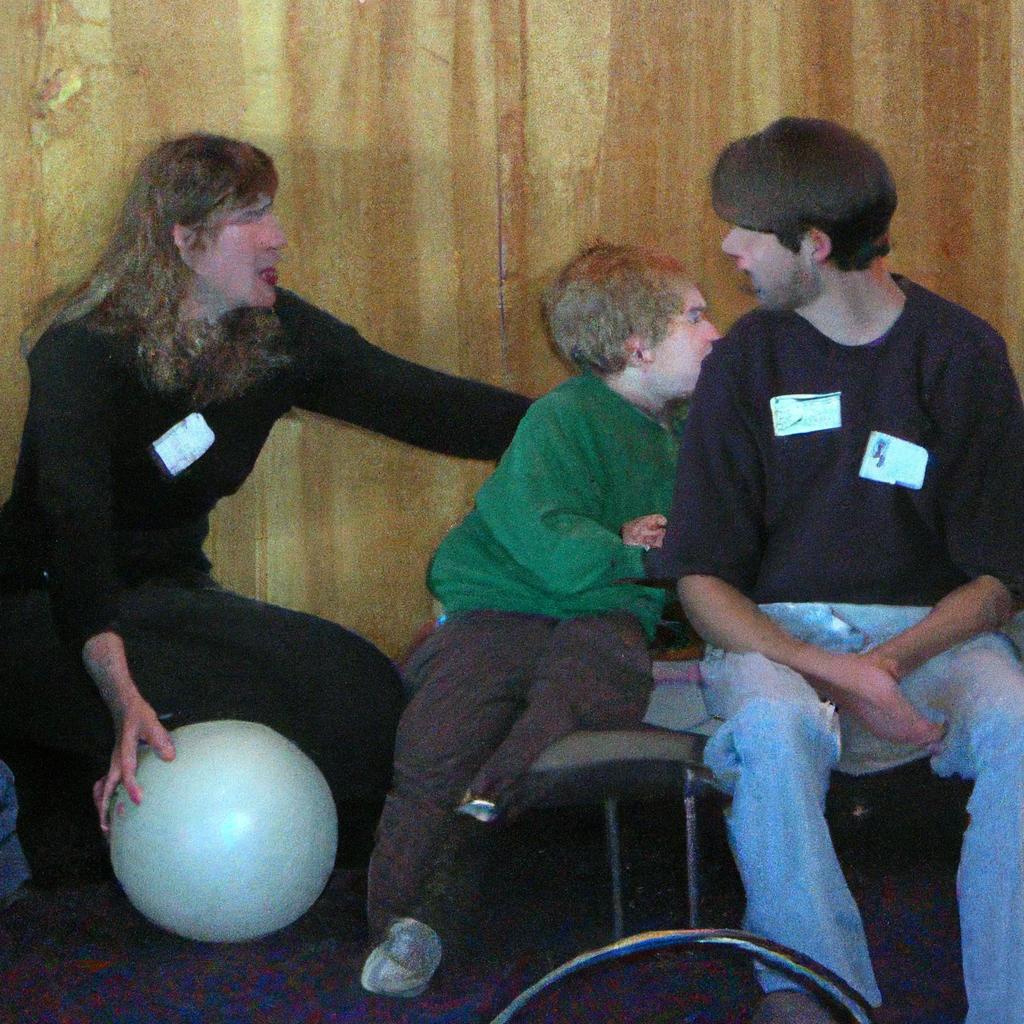In the intricate landscape of human relationships, trust stands as a cornerstone upon which bonds are forged and alliances are secured. As seasoned practitioners in matters of law, we at Morgan Legal Group understand the nuanced interplay of trust in both personal and professional realms. Delving into the question of whether trust is hard to gain requires a deft analysis of human behavior, societal norms, and the legal frameworks that govern our interactions. Join us as we navigate the complexities of trust, exploring the delicate balance between skepticism and reliance in the quest for authentic connections.
Building Trust Through Consistency and Honesty
is a crucial aspect of any relationship, whether personal or professional. Trust is not something that can be gained overnight; it requires time, effort, and dedication to establish a solid foundation. Consistency in words and actions is key to building trust, as it shows reliability and dependability. Honesty, on the other hand, is the cornerstone of trust. Being transparent and truthful in all dealings fosters a sense of openness and integrity, which are essential for a trusting relationship.
When it comes to gaining trust, it is important to remember that trust is earned, not given. It takes time to build trust, but it can be easily broken if consistency and honesty are compromised. By consistently following through on promises and being truthful in all communications, trust can be cultivated and nurtured over time. Remember, trust is like a delicate flower that needs to be cared for and nurtured to blossom and grow.

Navigating Challenges in Establishing Trust
Establishing trust in any relationship or situation can indeed be a daunting task. Trust is a delicate entity that requires time, effort, and consistency to build. It is like a fragile glass figurine that can easily shatter if mishandled. When , one must approach the process with care and precision.
- Transparency: Being transparent in your actions and intentions is crucial in gaining trust. Transparency builds credibility and shows sincerity in your interactions.
- Communication: Effective communication is key in establishing trust. Open and honest communication helps bridge gaps and fosters understanding between parties.
Trust is like a carefully constructed puzzle where each piece plays a vital role in forming a complete picture. It requires patience, empathy, and a willingness to listen and understand. In the world of estate planning and probate, trust is the foundation upon which successful outcomes are built. By navigating challenges with diligence and empathy, trust can be established and nurtured for a lasting and fruitful relationship.

The Role of Communication in Fostering Trust
Effective communication plays a crucial role in building trust between individuals, whether in personal relationships or professional settings. Clear and open communication helps to establish transparency, honesty, and reliability, which are all key components of trust. When parties communicate effectively, they are better able to understand each other’s perspectives, intentions, and expectations, leading to mutual respect and trust.
- Clear and transparent communication builds trust.
- Open dialogue fosters understanding and mutual respect.
- Honesty and reliability are key components of trust.
However, gaining trust can be a challenging task, requiring consistent effort and commitment to effective communication. It takes time to build trust, as individuals need to feel confident in the sincerity and reliability of the other party. By prioritizing clear, open, and honest communication, individuals can foster trust and strengthen their relationships over time.
| Communication | Trust Building |
|---|---|
| Clear | Establishes transparency |
| Open | Fosters understanding |
| Honest | Builds reliability |

strategies-for-cultivating-trust-in-personal-and-professional-relationships”>Strategies for Cultivating Trust in Personal and Professional Relationships
Trust is the cornerstone of any successful relationship, whether personal or professional. While some may argue that trust is hard to gain, it is essential to remember that trust is not built overnight. It requires time, effort, and consistency to cultivate trust with others. One strategy for building trust is to practice open and honest communication. By being transparent with others about your thoughts, feelings, and intentions, you can establish a strong foundation of trust.
Another effective strategy for cultivating trust is to follow through on your commitments. When you make a promise to someone, whether it is a personal or professional commitment, it is crucial to fulfill that promise. By demonstrating reliability and accountability, you can show others that you are trustworthy and dependable. Additionally, it is important to show respect for others’ boundaries and privacy. Respecting someone’s personal space and boundaries demonstrates that you value and honor their feelings and helps to build a sense of trust and mutual respect in the relationship. By incorporating these strategies into your interactions with others, you can build strong and lasting relationships based on trust and respect.
Q&A
Q: Is trust hard to gain?
A: Trust can often be difficult to gain, as it requires consistency, honesty, and reliability over time to build a strong foundation.
Q: What are some common barriers to gaining trust?
A: Examples of common barriers to gaining trust include past betrayals, lack of communication, and inconsistent behavior.
Q: How can one work towards gaining trust?
A: One can work towards gaining trust by being transparent, keeping promises, and showing empathy and understanding towards others.
Q: Is trust essential in relationships?
A: Yes, trust is essential in relationships as it forms the basis for strong communication, mutual respect, and emotional intimacy.
Q: Can trust be regained once it’s lost?
A: Yes, trust can be regained once it’s lost through sincere apologies, making amends, and demonstrating a commitment to change.
In Retrospect
In conclusion, trust can be a fragile and elusive thing, difficult to gain yet easy to lose. It requires patience, consistency, and integrity to build and maintain. While trust may be hard to earn in a world filled with skepticism and treachery, it is a vital element in forming meaningful relationships and fostering a sense of security and connection. So, let us strive to cultivate trust in ourselves and others, for in doing so, we create a foundation of honesty and understanding that can withstand the tests of time. Trust may be hard to gain, but its rewards are immeasurable.
 Is Trust Hard to Gain?
Is Trust Hard to Gain?
Trust is a critical aspect of any relationship, whether it be personal or professional. It is the foundation on which relationships are built and sustained. However, trust is not something that can be gained easily. It takes time, effort, and consistent actions to build trust with someone. In this article, we will delve into the question, “Is trust hard to gain?” and explore the various aspects of trust, how it can be built, and the importance of trust in our lives.
Defining Trust
Before we dive into the topic, let’s first understand what trust means. Trust is the belief or confidence in the reliability, honesty, and integrity of another person. It is the feeling of being able to rely on someone and having faith that they will do what they say they will. Trust is also an essential factor in developing meaningful and long-lasting relationships with people.
The Importance of Trust
Trust plays a significant role in our daily lives. It influences our interactions with others and affects our decisions and choices. For instance, in a workplace, trust between employees and their superiors is vital for a healthy and productive work environment. Trust is also crucial in personal relationships, as it builds a strong bond between individuals and fosters a sense of security.
Benefits of Building Trust
Building trust with others can bring numerous benefits, both personally and professionally. Trust can enhance communication, promote teamwork, and increase efficiency. It also leads to better and more effective decision-making, as individuals feel comfortable sharing their thoughts and opinions when trust is established. Additionally, trust helps to enhance a person’s self-esteem and confidence as they feel valued and respected. Overall, building trust with people can contribute to a positive and fulfilling life.
Factors that Affect Trust
Several factors can hinder or aid in the development of trust in a relationship. Here are a few key factors that can affect trust-building:
1. Consistency: Consistency is crucial in building trust. People tend to trust those who show consistency in their words and actions. When someone’s behavior is unpredictable, it creates a sense of uncertainty, making it challenging to trust them.
2. Communication: Effective and honest communication is the key to building trust. Open and transparent communication can help to establish a deeper understanding and foster trust between individuals.
3. Reliability: Trust relies on being able to rely on someone. When a person consistently follows through on their commitments and promises, it builds trust and strengthens the relationship.
4. Transparency: Honesty and transparency are essential components of building trust. Being open and transparent about one’s intentions, actions, and mistakes can help establish a sense of trustworthiness.
5. Vulnerability: Trust can also be built when individuals are willing to be vulnerable and open up to each other. This shows a level of trust and allows others to reciprocate the same level of trust.
Why Trust is Hard to Gain
Now that we understand the importance of trust in our lives let’s address the main question, “Is trust hard to gain?” The answer is yes. Trust is not something that can be gained overnight; it takes time and effort to build. Here are a few reasons why trust can be hard to gain:
1. Past Experiences: Past experiences can have a significant impact on a person’s ability to trust. If someone has experienced betrayal, disappointment, or hurt in the past, it can make them hesitant to trust others in the future.
2. Fear of Vulnerability: Being vulnerable requires one to let their guard down and allow others to see their true self. This can be scary for some people, and therefore they may struggle to trust others.
3. Lack of Communication: As mentioned earlier, communication plays a crucial role in building trust. If there is a lack of honest and open communication, it can hinder the establishment of trust between individuals.
4. High Expectations: Having unrealistic expectations from others can make it difficult to build trust and maintain it. When expectations are not met, it can lead to disappointment and a breakdown in trust.
How to Build Trust
Trust is not easy to gain, but it is certainly not impossible. With time, effort, and consistent actions, trust can be built and strengthened. Here are some practical tips to help in building trust with others:
1. Be Open and Honest: Honesty is the foundation of trust. Be transparent about your intentions and actions, and avoid hiding information or exaggerating the truth.
2. Follow Through: Always follow through on your promises and commitments. This shows that you are reliable and can be trusted.
3. Communicate Effectively: Communication is key in building trust. Be open and willing to listen and communicate effectively.
4. Set Realistic Expectations: Avoid setting unrealistic expectations from others, as this can lead to disappointment and affect trust.
5. Be Vulnerable: Allow yourself to be vulnerable and open up to people. This shows a willingness to trust them and encourages them to do the same.
Real-Life Experiences
Despite the challenges of gaining trust, there are many success stories of individuals who were able to build trust with others. One such story is that of Oprah Winfrey and her best friend Gayle King. The two women have been friends for over four decades, and their friendship is built on trust and open communication. They have been through ups and downs together, but their trust in each other has remained strong.
In another example, Tony Robbins, a renowned life coach, built trust with one of his clients, a successful entrepreneur, by being transparent and open about his own struggles and vulnerabilities. This encouraged his client to trust him and lead to a successful coaching relationship.
Conclusion
In conclusion, trust is a fundamental element in any relationship, and it is not easy to gain. However, with time, effort, and consistent actions, trust can be built and strengthened. Effective communication, reliability, and vulnerability are key factors in building trust. Trust can bring numerous benefits, both personally and professionally, and it is a crucial ingredient for a happy and fulfilling life. So, invest in building trust with those around you, and you will see the positive impact it can have on your relationships and overall well-being.

